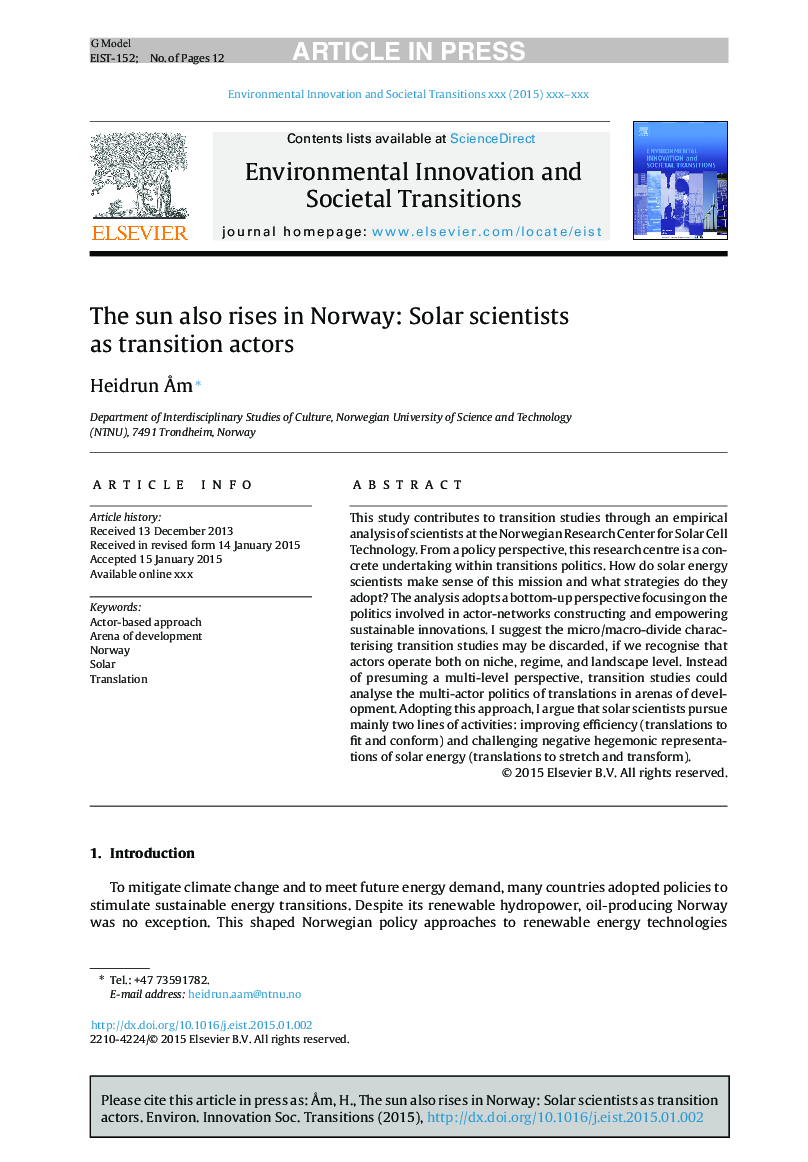| Article ID | Journal | Published Year | Pages | File Type |
|---|---|---|---|---|
| 6559429 | Environmental Innovation and Societal Transitions | 2015 | 12 Pages |
Abstract
This study contributes to transition studies through an empirical analysis of scientists at the Norwegian Research Center for Solar Cell Technology. From a policy perspective, this research centre is a concrete undertaking within transitions politics. How do solar energy scientists make sense of this mission and what strategies do they adopt? The analysis adopts a bottom-up perspective focusing on the politics involved in actor-networks constructing and empowering sustainable innovations. I suggest the micro/macro-divide characterising transition studies may be discarded, if we recognise that actors operate both on niche, regime, and landscape level. Instead of presuming a multi-level perspective, transition studies could analyse the multi-actor politics of translations in arenas of development. Adopting this approach, I argue that solar scientists pursue mainly two lines of activities: improving efficiency (translations to fit and conform) and challenging negative hegemonic representations of solar energy (translations to stretch and transform).
Keywords
Related Topics
Life Sciences
Environmental Science
Management, Monitoring, Policy and Law
Authors
Heidrun Ã
m,
